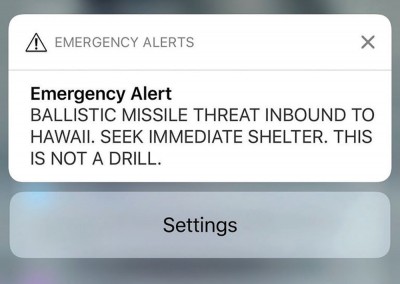
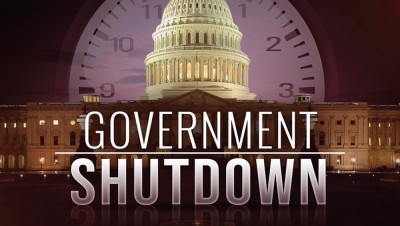
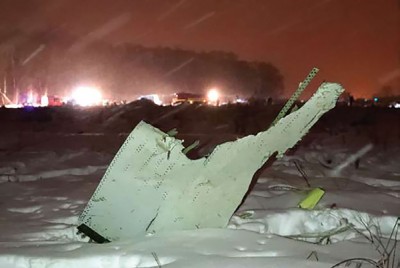
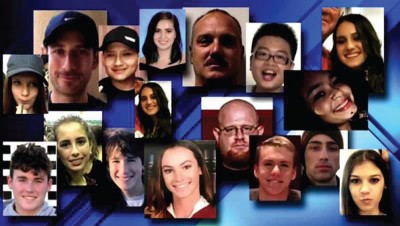
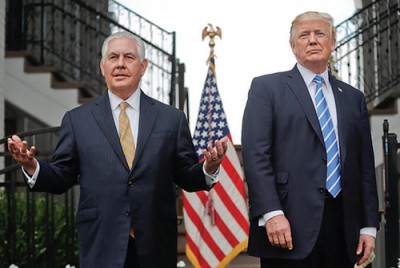
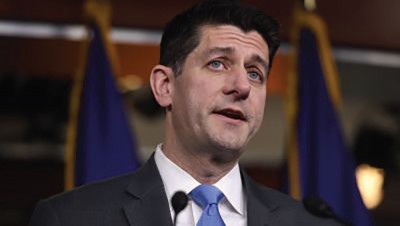
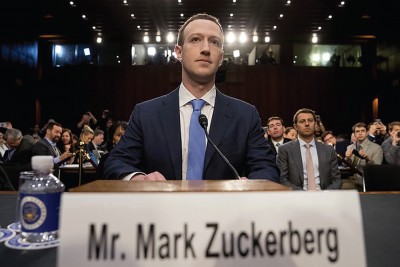
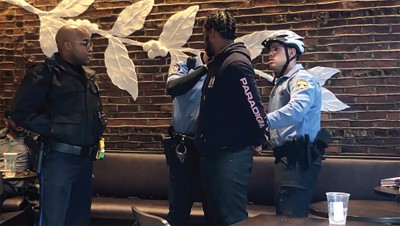
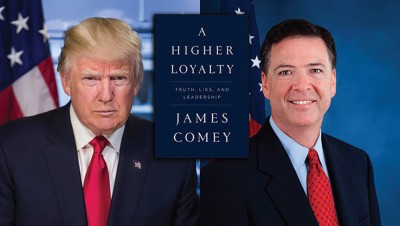

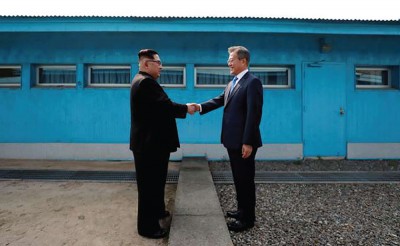
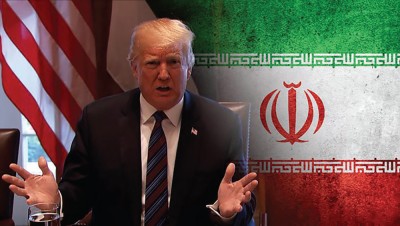

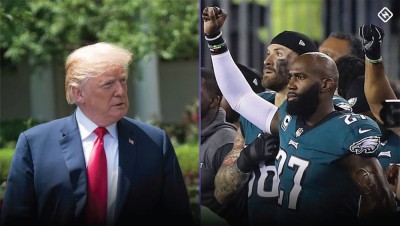
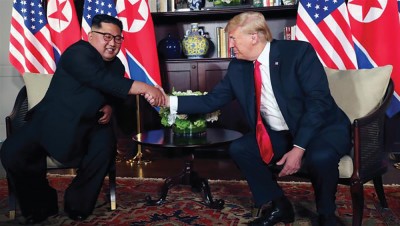
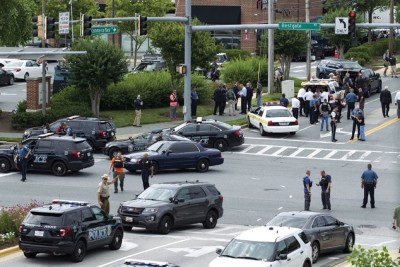
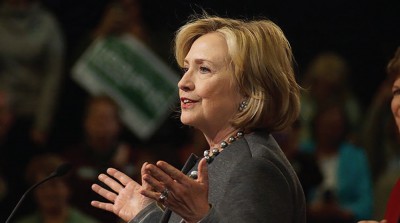
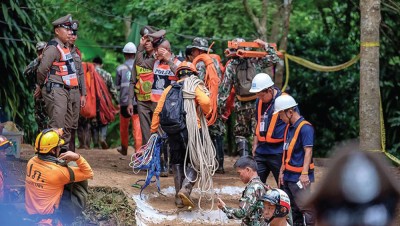
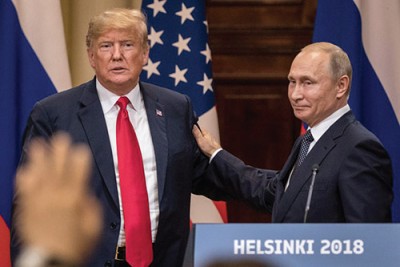
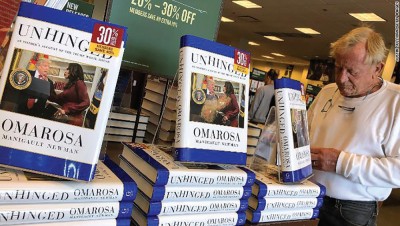
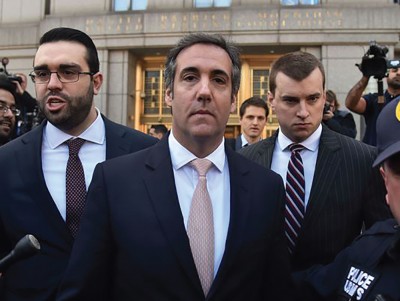
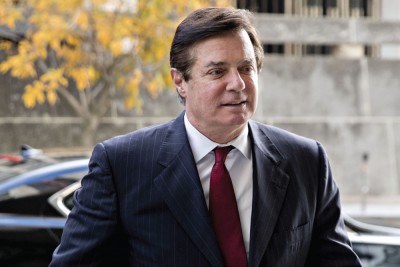


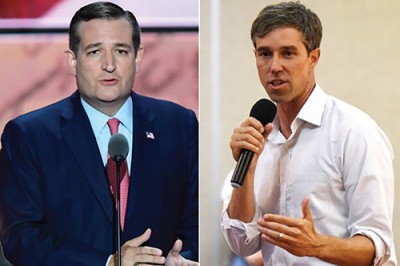

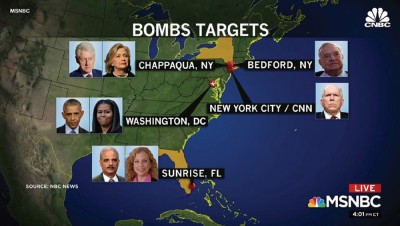
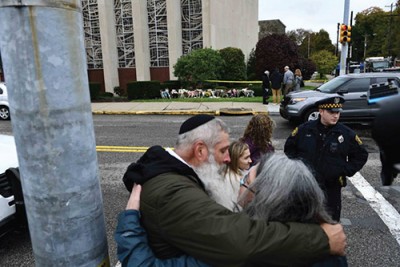
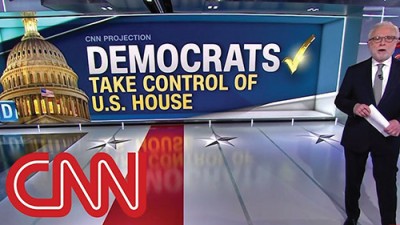

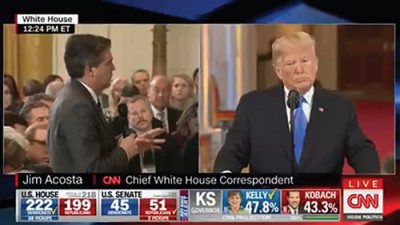
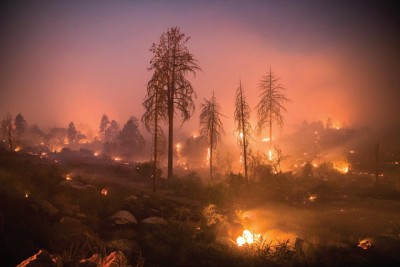
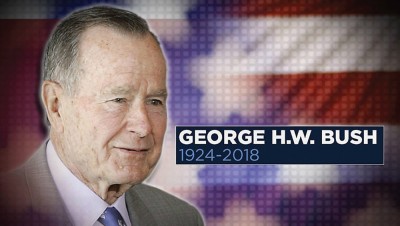
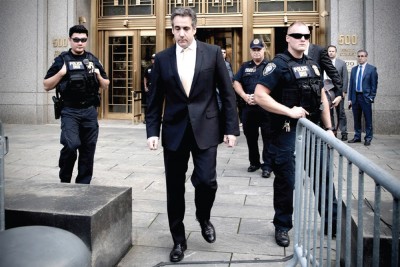
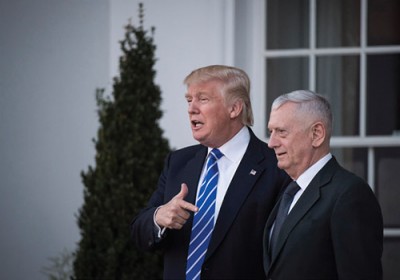
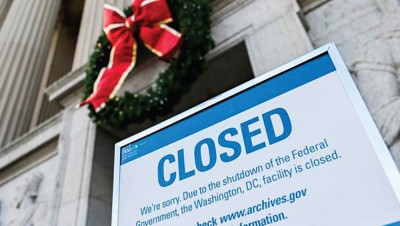
There was no shortage of big news stories around the globe in 2018. Obviously, we couldn’t include all of them but here’s a recap of some of the big ones.
Jan. 13: Hawaiians were shocked to receive an emergency missile alert on their phones, which was determined to be a false alarm nearly 40 minutes later. The Hawaii Emergency Management Agency worker who sent the alert by mistake was fired, and another top official resigned.
Jan. 19: The government shut down for three days after lawmakers were unable to reach agreement on a temporary spending bill. Democrats had pledged not to support a spending measure that did not include an agreement on how to ensure protections for young undocumented immigrants brought to the U.S. as children, known as “Dreamers.” Democrats agreed to end the impasse after Senate Majority Leader Mitch McConnell promised to take up a bill on immigration the following month.
Feb. 2: The House Intelligence Committee released a controversial memo, compiled by Chairman Devin Nunes’ staff, alleging that top FBI and Justice Department officials abused their surveillance powers to spy on members of Trump’s campaign.
Feb. 11: Saratov Airlines Flight 703 crashed minutes after takeoff from Moscow, Russia, killing all 65 passengers and six crew members on board. Investigators blamed bad weather and human error for the accident.
Feb. 14: Tragedy strikes: Mass shooting at Marjory Stoneman Douglas High School in Parkland, Fla., that killed 17 students and staff became the catalyst for a massive, youth-led movement calling on lawmakers to take action on gun control and school violence. Survivors and their parents met with Trump, leading to the establishment of a White House commission on school safety, an eventual ban on bump stocks and some state legislation tightening gun laws.
Feb. 16: Special counsel Robert Mueller brought charges against 13 Russian nationals and three Russian groups accused of participating in a disinformation campaign on social media linked to a broader plot by Moscow to interfere in the 2016 U.S. presidential election.
Mar. 13: President Trump fired Secretary of State Rex Tillerson, who had reportedly called him a “moron” behind his back, and replaced him with then-CIA Director Mike Pompeo.
Apr. 9: FBI agents, executing a search warrant based partly on a referral from Robert Mueller, raided the office, home and hotel room of Michael Cohen, Trump’s longtime personal lawyer.
Apr. 11: House Speaker Paul Ryan announces that he will retire in January, ending a three-year Speakership whose crowning achievement was the 2017 overhaul of the tax code.
Apr. 11: Facebook CEO Mark Zuckerberg testified in front of lawmakers on key issues including data privacy and his company’s market power following the Cambridge Analytica scandal, in which the data of tens of millions of users was used by a third party for political targeting without user permission.
Apr. 12: Two black men were arrested in a Philadelphia Starbucks, where they were waiting to meet a friend but hadn’t ordered anything. The case heightened national awareness of racial profiling in public places and prompted Starbucks to hold a company-wide day of racial bias training.
Apr. 17: Former FBI Director James Comey published his memoir, “A Higher Loyalty: Truth, Lies, and Leadership,” which tore into Trump as “unethical” and “untethered to truth” and prompted the president to blast him as a “LEAKER & LIAR” who “should be prosecuted.”
Apr. 17: Former first lady Barbara Bush died at the age of 92.
Apr. 27: Kim Jong Un crossed into South Korea. The North Korean leader became the first from his nation to cross the Korean Demilitarized Zone, since its creation in 1953, to meet with South Korean President Moon Jae-in. The two held extensive talks that revolved around the denuclearization of the Korean Peninsula.
May 7: Attorney General Jeff Sessions announced the “zero tolerance” policy that resulted in thousands of migrant children being separated from their parents. The separations sparked widespread protests and condemnation from lawmakers until they were ended in June.
May 8: Trump fulfilled a key campaign promise and withdrew the United States from the Iran nuclear deal, setting off a flurry of international activity to try to save the accord. Trump followed through with his withdrawal by reimposing sanctions on Iran in August and November.
May 14: The U.S. opened its new embassy in Jerusalem, the result of a vow by Trump to recognize Jerusalem as the capital of Israel and relocate the U.S. Embassy.
June 4: Trump dis-invited the Super Bowl–champion Philadelphia Eagles from the White House, citing the team’s participation in protests during the national anthem.
June 12: Trump met with North Korean leader Kim Jong Un for a historic summit in Singapore. The two signed a joint declaration that called, in vague terms, for a denuclearized Korean Peninsula in exchange for the U.S. ceasing war games with South Korea.
June 26: Alexandria Ocasio-Cortez, a democratic socialist running her first campaign for elected office, knocked off longtime Rep. Joseph Crowley (D-N.Y.) in a primary upset that shocked the political world and rocketed Ocasio-Cortez to Democratic stardom.
June 28: Five people were killed in a shooting at Maryland newspaper the Capital Gazette, underlying concerns about how political attacks on the press could lead to violence.
July 3: The Senate Intelligence Committee reaffirmed the intelligence community’s conclusion that Russia interfered in the 2016 presidential election, finding that the Kremlin sought to hurt Democratic nominee Hillary Clinton’s campaign and help Trump.
July 10: All members of a youth soccer team and their coach were extracted from a cave where they had been trapped for nearly two weeks. Thai Navy SEALs, as well as elite divers and military from several countries, including the U.S., participated in the rescue effort that had the world holding its breath. One ex-Thai Navy SEAL died in the rescue effort.
July 12: Peter Strzok — the FBI agent who sent disparaging text messages about Trump during the 2016 campaign, testified to Congress. Republicans ripped into Strzok during the wild hearing, and he fired back. The FBI would later fire Strzok in August.
July 13: Only days before the Pakistani general election, a suicide bomber detonated an explosive in Mastung district during a rally. The explosion killed 149 and injured 186 others. The Islamic State of Iraq (ISIL) claimed responsibility for the event.
July 16: Maria Butina, a Russian woman with ties to the National Rifle Association who was living in Washington, D.C., was arrested on charges of acting as an unregistered foreign agent ahead of the 2016 presidential election. She originally pleaded not guilty, but later entered a guilty plea.
July 18: Trump appeared alongside Russian President Vladimir Putin at a press conference following a summit in Helsinki, Finland, during which he shocked Republicans and Democrats alike with his refusal to denounce Russian meddling in U.S. elections.
Aug. 2: Shares in the iPhone manufacturer touched an all-time high of $207.39 at close of trade, making it the first American company to be worth over $1 trillion. Based in Cupertino, California, the company beat rivals Amazon, Facebook and Microsoft to the record; Amazon crossed the mark shortly thereafter, when its shares touched $2,050.50 on the morning of Sept. 4.
Aug. 14: Former White House aide Omarosa Manigault Newman publishes a book blasting President Trump, in which she said that Trump used the N-word on the set of his reality show.
Aug. 21: Michael Cohen pleaded guilty to federal charges of bank fraud, tax fraud and campaign finance law violations. Cohen testified that he made those illegal payments at the direction of then-candidate Trump.
Aug. 21: Moments later, former Trump campaign chairman Paul Manafort was convicted by a jury on eight counts of bank and tax fraud.
Aug. 25: Arizona Senator John McCain died at the age of 81 after being diagnosed with brain cancer.
Sept. 7: Former Trump campaign aide George Papadopoulos was sentenced to 14 days in prison and one year supervised release for lying to FBI investigators about his contacts with Russia.
Sept. 28: A magnitude 7.4 earthquake hit the Indonesian island of Sulawesi, which triggered a massive tsunami that left 2,100 dead, injured over 4,600, damaged over 68,450 houses and left around 680 people missing.
Sep–Oct: The confirmation hearings of now-Supreme Court Justice Brett Kavanaugh gripped the nation, especially after Christine Blasey Ford, a psychology professor in California, came forward with an allegation that Kavanaugh assaulted her in the 1980s, when the two were in high school. After several days of hearings and public testimony from both Kavanaugh and Ford, Trump’s second Supreme Court nominee was confirmed.
Oct. 2: Saudi journalist Jamal Khashoggi, a columnist for The Washington Post, disappeared after entering the Saudi Consulate in Istanbul, where it was later admitted he was killed. Trump angered senators and the international community by refusing to blame Saudi Crown Prince Mohammed bin Salman for involvement in the murder. The Senate ultimately passed a measure formally naming the crown prince “responsible.”
Oct. 7: The United Nations released a dire report warning that the world may be on a path toward catastrophic climate change if greenhouse gas emissions are not dramatically reduced by 2030.
Oct. 12: Beto O’Rourke raised a record-setting $38 million in the third quarter in his effort to unseat Republican Sen. Ted Cruz. O’Rourke’s Senate bid was ultimately unsuccessful, but the El Paso Democrat skyrocketed to stardom and is being hailed as a potential 2020 Democratic presidential candidate.
Oct. 15: A caravan of hundreds of Central American migrants began forming to travel from Honduras to the U.S.-Mexico border. The supposed danger of the caravan became a major theme of President Trump's in the midterm elections, to the chagrin of some in his party.
Oct 23: The world’s longest sea bridge was opened on this day. Stretching over 34.2 miles (55 kilometers), the Hong Kong–Zhuhai–Macau Bridge connects the three major cities on the Pearl River Delta. Inaugurated by Chinese President Xi Jinping, the bridge cost nearly $20 billion to build.
Oct. 25: Explosive devices were mailed to more than a dozen prominent Democratic figures and news organizations, including the Obamas, former Secretary of State Hillary Clinton, philanthropist George Soros and CNN’s New York offices. The suspect, Cesar Sayoc Jr., later pleaded not guilty to charges of using weapons of mass destruction with intent of killing or injuring individuals.
Oct. 27: Tragedy strikes again: Eleven people were killed in a shooting inside Pittsburgh’s Tree of Life Synagogue, the deadliest anti-Semitic attack in the U.S.
Nov. 6: Democrats took back control of the House, but Republicans held on to the Senate in the 2018 midterm elections.
Nov. 7: Trump fired Attorney General Jeff Sessions the day after the midterm elections. Trump had long criticized Sessions for recusing himself from the special counsel investigation into Russian election interference.
Nov. 7: The White House suspended the press pass of CNN correspondent Jim Acosta following a testy exchange with Trump, marking a boiling point in Trump’s feud with the media. A judge ordered the White House to reinstate the credentials.
Nov. 13: Former first lady Michelle Obama releases her memoir, “Becoming.” The book shoots to the top of the charts and becoming the best-selling hardcover book of the year.
Nov. 25: After two weeks of devastation, firefighters in California were able to contain the Camp Fire, the deadliest blaze in state history. It had killed 88 people, destroyed nearly 20,000 buildings and caused up to $10 billion in damages. It took over 1,000 firefighters, 70 fire engines and two helicopters to bring the blaze under control.
Dec. 1: Former President George H.W. Bush died at the age of 94. At his funeral, Trump joined former Presidents Obama, Clinton, Carter and George W. Bush. Trump and first lady Melania Trump sat next to the Obamas and Clintons. Trump and the Clintons did not appear to speak.
Dec. 4: Mueller recommended no prison time for former Trump national security adviser Michael Flynn, citing his “substantial assistance” with the Russia investigation. Flynn pleaded guilty roughly one year earlier to lying to FBI agents about his contacts with the Russian ambassador. Later in the month, Flynn's sentencing was delayed.
Dec. 12: Michael Cohen was sentenced to three years in prison for a series of crimes he committed while working as Trump’s personal lawyer, including campaign finance law violations that he allegedly made at the direction of Trump.
Dec. 20: Defense Secretary James Mattis abruptly resigned, writing in a letter that his views are not in line with Trump’s.
Dec. 21: The government went into a partial shutdown after lawmakers failed to reach a deal on funding. The impasse was tied to Trump’s demand for $5 billion to fund his proposed border wall between the U.S. and Mexico.
Dec. 26: Trump and first lady Melania Trump made an unannounced visit to visit U.S. troops in Iraq. The president had received flak for being the first commander in chief not to visit troops around Christmas since 2002.
(Sources: TheHill, ABC, NBC, FOX)
BLOG COMMENTS POWERED BY DISQUS
2018 YEAR IN REVIEW
Typography
- Smaller Small Medium Big Bigger
- Default Helvetica Segoe Georgia Times
- Reading Mode










